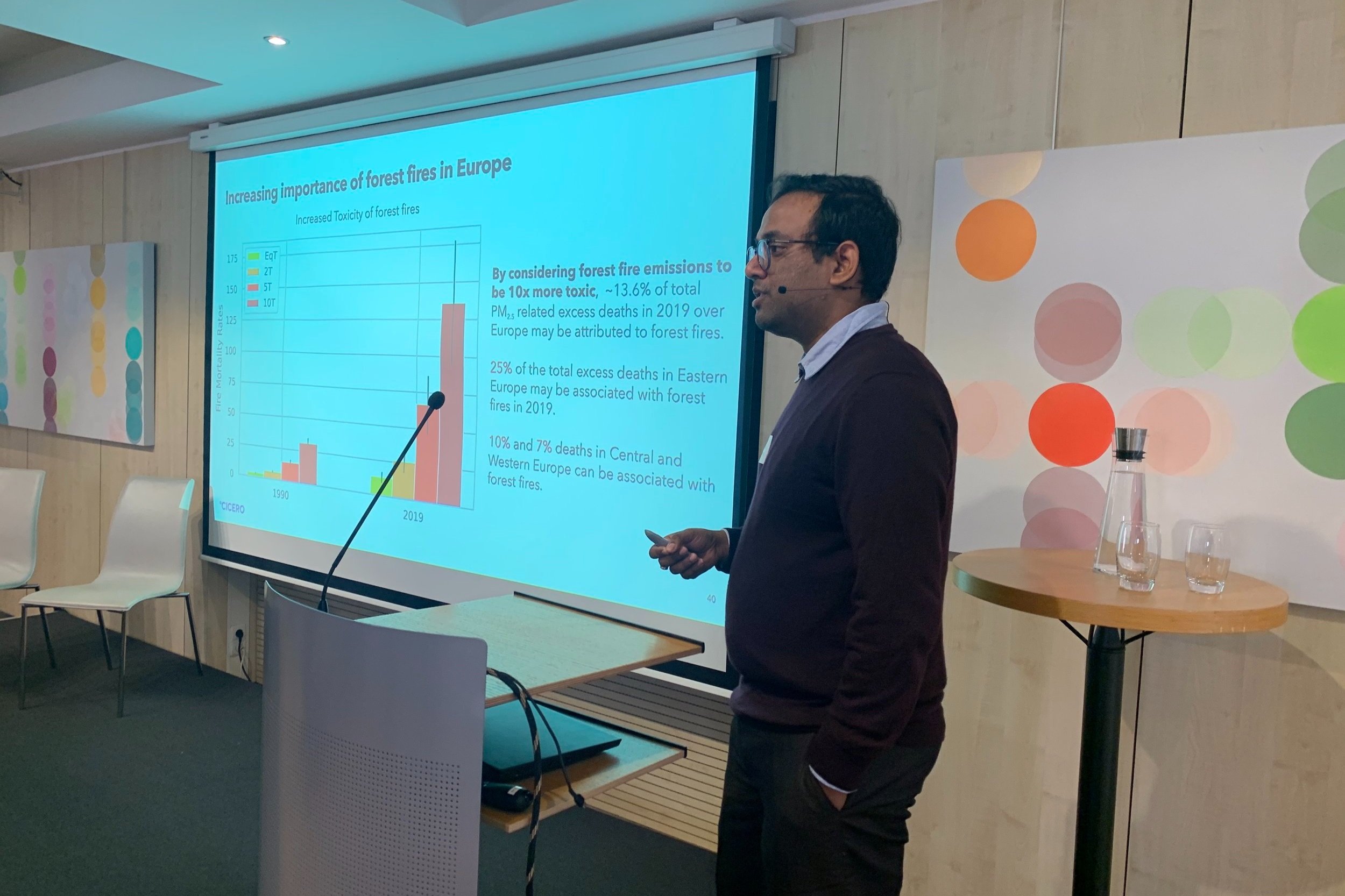Environmental exposures do not affect humans in isolation. Humans are exposed to a mix of factors, and we have to look at them more comprehensively. That is the main outcome of the research of Alexandra Schneider, Deputy Director of the Institute of Epidemiology at Helmholtz Munich.
“Let’s take noise as an example. Noise can be very stressful, and if you are stressed your body also experiences other stimuli differently. If you don’t sleep well for example, you will cope with the additional factors in other ways”, said Schneider. Her research is a part of the EU project EXHAUSTION, that seeks to understand how heat exposure affects the health of individuals living in different areas.
“We find that heat has more effect on your health on days with very high air pollution. We therefore need to reduce air pollution to also reduce the effect of heat on our health“, said Schneider.
Usually, researchers have looked at environmental factors separately, investigating how they affect health. Schneider and her colleagues have studied air pollution and heat jointly, taking other factors into account, like degree of urbanicity and population density per area.
Need integrated policies
“Lack of green spaces in a city, makes the heat effect stronger. If the city has a lot of green areas, you will feel much cooler in the park, and it will feel like a wall when you walk out from it”, said Schneider and mentions Munich, where she lives herself, as an example.
Lack of green spaces in a city, makes the heat effect stronger. If the city has a lot of green areas, you will feel much cooler in the park.
Photo of Munich: Alexa, Pixabay
In the study, they looked at 148 cities in Europe. Worldwide they studied 482 cities.
“Some countries were more affected than others, but it always depends on what you are used to. You adapt to your local climate, so 25 degrees in Oslo are experienced differently than 25 degrees in Rome,” said Schneider.
Overall, her research highlights the need for integrated environmental, climate and health policies. That can generate health co-benefits of climate protection and climate adaptation measures.
Forest fires and air pollution
Sourangsu Chowdhury, Senior researcher at CICERO Center for International Climate Research has taken part in the Exhaustion project. He has tried to quantify the contribution of forest fires to long-term air pollution exposure and chronic impacts on human health.
“We find that the excess deaths from exposure to ambient air pollution have decreased by more than 50% over the last 30 years, while the excess deaths attributable to wildfires have increased by more than 100% in the same time period “, said Chowdhury.
Sourangsu Chowdhury, Senior Researcher CICERO. Photo: CICERO
Forest fires are increasingly becoming an important source of mortality in Europe.
“If these emissions are indeed more toxic compared to emissions from other sources, they may be responsible for 13 per cent of all excess deaths from air pollution in Europe”.
Chowdhury's research indicates that, in the most optimistic scenario, forest fires are anticipated to cause a minimum of six times more deaths in Europe by the end of the century compared to the current rates.
“Hence, it is imperative to establish robust adaptation policies and implement forest management plans to address the health impacts caused by forest fires”, said Chowdhury.
He emphasizes the collective health co-benefits of achieving low-emission pathways, rather than pathways characterized by high emissions and limited mitigation measures.
Forest fires are increasingly becoming an important source of mortality in Europe. Policies leading to low-emissions pathways are important for our health. Photo: Unsplash






